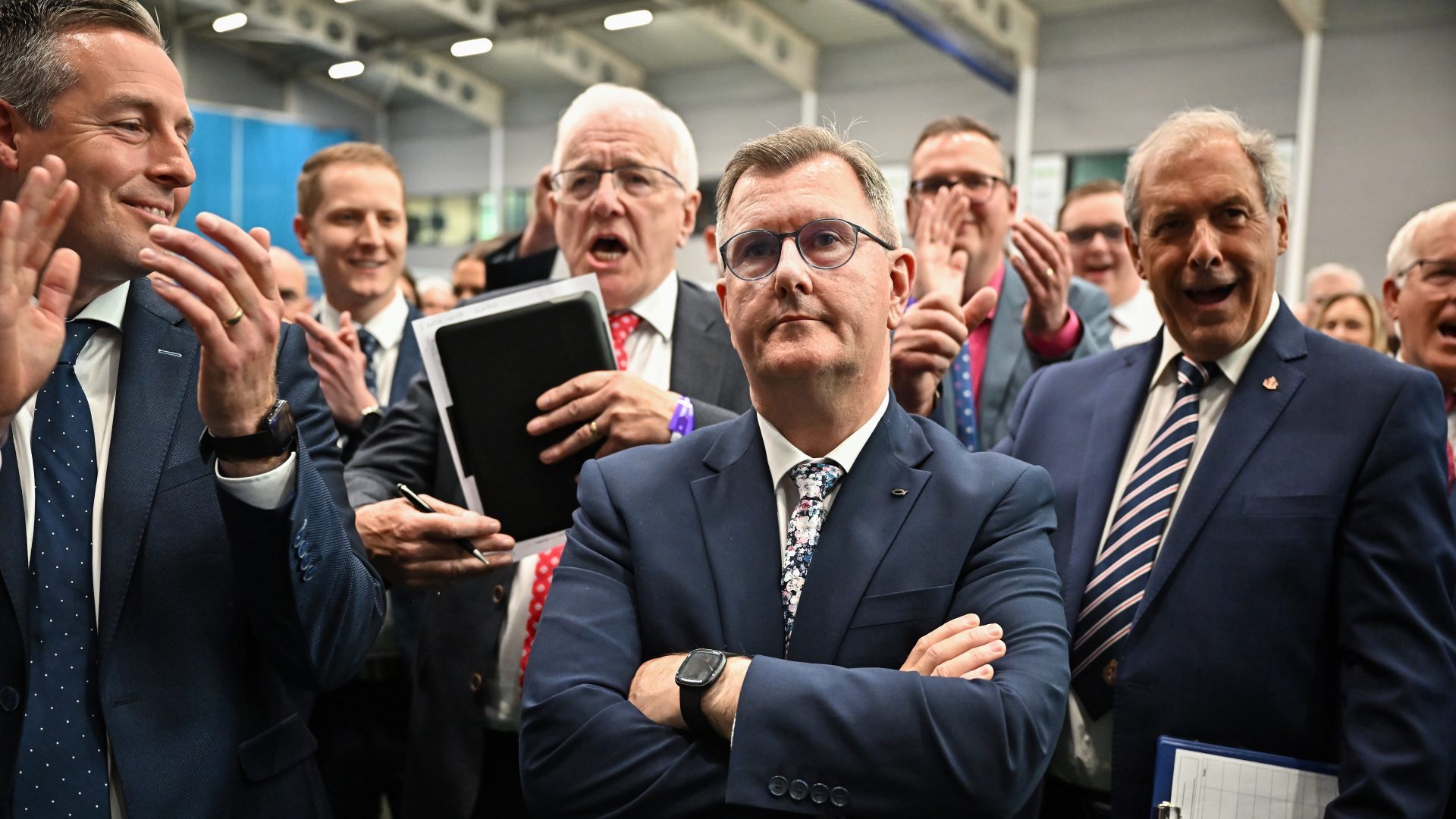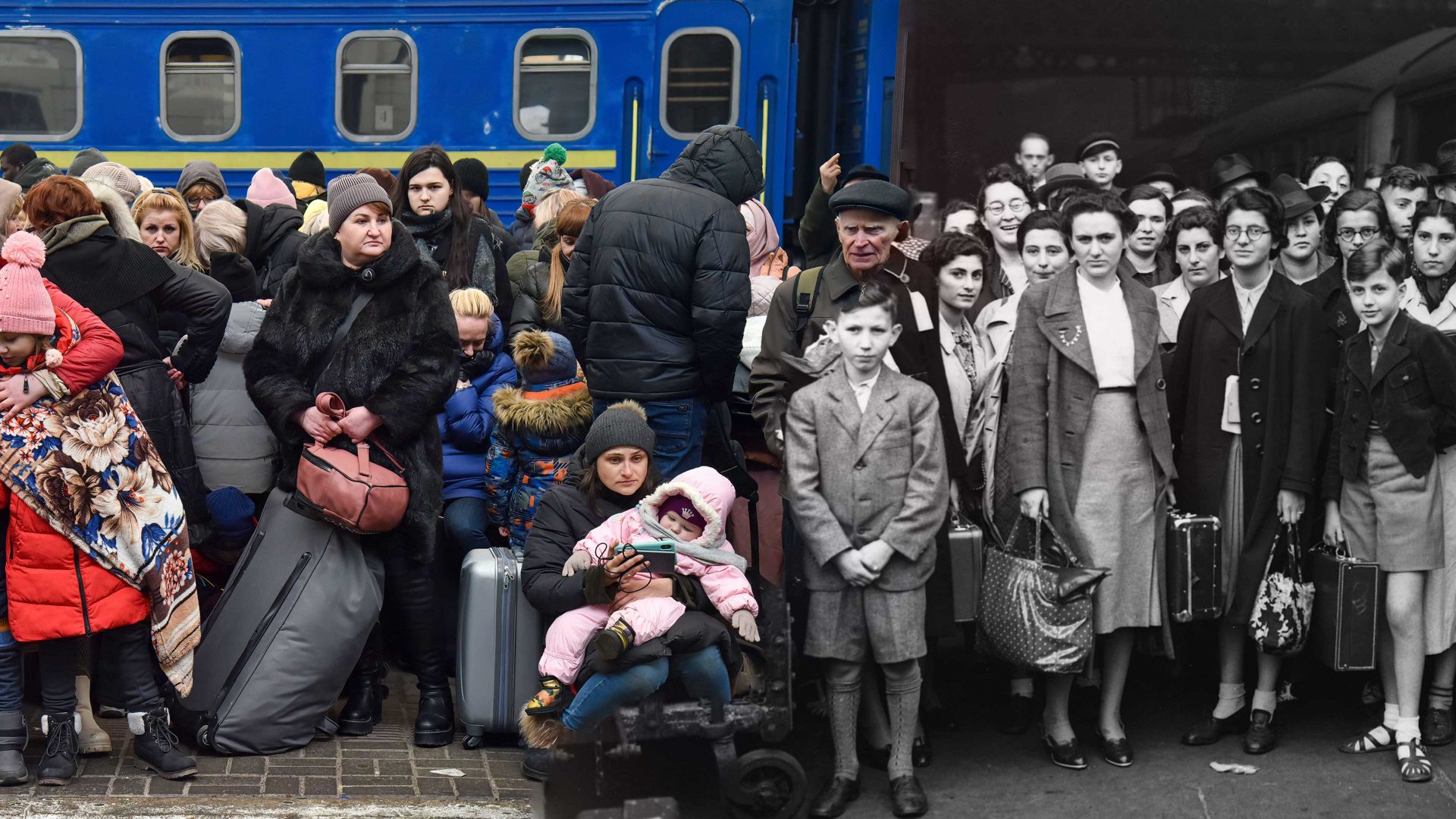It’s not often that the usual headline fare of political hyperbole seems to meet its match in real events. But the outcome of May 5’s Northern Ireland Assembly election last week certainly seemed to warrant old favourites such as “seismic”, “ground-breaking”, even “historic” and “era-defining” being dusted down again.
Indeed, it’s 23 years since Northern Ireland saw those terms deployed with equal abandon, on that occasion heralding the Good Friday or Belfast Agreement, which initiated the Assembly and devolution process the recent election was meant to progress.
Sinn Féin topping the poll, the first time a non-unionist party has secured the most seats in 101 years; ousting the pro-Union Democratic Unionists as the largest single party in the Assembly and harvesting nearly a quarter of a million first preference votes to the DUP’s 184,000, set Irish nationalist hearts racing across the world. This wasn’t principally because of the success of the party in Northern Ireland, or because it reinforced the progress of the peace process, but because the ‘country’ routinely regarded by nationalists and republicans and by successive governments in the Republic of Ireland, as a “failed entity”, seemed indeed to have been radically outgrown by a burgeoning nationalist population.
Paradoxically SF’s triumph, rather than making progress with the devolved administration in Belfast, has prompted heady talk of an imminent border poll, the arrival of a majority for a united Ireland and the dissolution not only of the Assembly and Executive, but of Northern Ireland itself.
Unionism wanted to fight the election campaign on removing the NI Protocol – that “border in the Irish Sea” which unionists consider a radical diminishing of the union with Britain. Unsurprisingly, that wasn’t going to secure the cross-community appeal the DUP needed.
Equally, saying the quiet bit out loud – “SF could win the first minister’s post” – only reinforced the sense of opportunity for nationalism.
Indeed, SF’s electoral strategy was made simple by the difficulties of the DUP, which underwent seismic shifts of its own last year with three leaders in the space of a few months, accompanied by bitter in-fighting. Promised party reform didn’t happen. The grassroots were left to fend for themselves in the aftermath of some savage divisions thanks to the leadership mayhem. Reconnection with the Protestant working class, rather than meaning a systematic engagement and listening exercise with ordinary people, ended up with eminent unionist leaders sharing platforms and microphones with some low-credibility individuals.
A very brief and, as it turns out, illusory revival of the smaller Ulster Unionist Party (UUP) under the affable Doug Beattie, and customarily noisy interventions from the hard-line MLA Jim Allister, leader of the Traditional Unionist Voice (TUV), seemed to herald a version of a united front. But a series of low-energy rallies in rural locations, largely closed to the general public, and involving senior Brexiteers such as Ben Habib and Baroness Hoey, quickly laid bare divisions.
Beattie, who opposed the DUP’s decision in early February to collapse the Assembly in protest at the protocol, pulled out of the protests, arguing they stoked tensions. Shortly afterwards a brick was lobbed through his constituency office and a poster of Mr Beattie with a noose crudely drawn around his neck was left on a bench ahead of a rally in Lurgan.
The protests lacked the lustre needed for the new DUP leader, Sir Jeffrey Donaldson MP, to cajole his own voters into any sense of confidence in the future. Instead, they gave a leg-up to Mr Allister, who for months had been holding the DUP’s feet to the fire over the Protocol. The DUP played footsie with him at those rallies and he put his boot up their backside on polling day, helping to send DUP first preference votes spiralling down by around 40,000 on 2017.
TUV gains can be credited largely to disaffected DUP voters – and that ended up costing unionism the coveted first minister role. Ironically, though the TUV’s vote increased by 5.1% to 7.6%, it still holds only one seat, yet the DUP lost three.
Coupled with the jitters over a SF First Minister, unionism staked everything on forcing a change to the NI Protocol. Had some movement been possible on this critical issue prior to the election – at any time – unionism might have been able to ride the dragon of the polls. But the hope that a big win would help ‘ditch’ the Protocol or force Westminster’s or Dublin’s or Brussels’s hands, was always a vain one, even had the DUP pulled off a miracle and taken pole position.
In the midst of this, the single powerful idea which unionism does have that can counter the romantic appeal of a misty all-Ireland republic festooned with shamrocks, is the enduring attraction of the stability and prosperity fostered by the union – two virtues people in Northern Ireland haven’t seen much of over the last century of intermittent conflict.
And the lure of this idea is enhanced by the simple fact that polling persistently shows a majority in Northern Ireland in favour of maintaining the status quo of the union with GB.
This may be a puzzle to those used to binary politics or monocultural identity, but somehow Northern Irish people have managed to find a way to be two or more things at once – nationalist by aspiration, pragmatic by conviction. At this time, and for a while, nationalists can manage a union with Britain which is different, changed, fair and of advantage to themselves and their families.
None of that was front and centre with the unionist campaign.
Instead, the simple, dreadful (to the DUP) prospect of an SF first minister did much of SF’s electioneering for it. Some have suggested that unionism’s scaremongering only galvanised nationalism further. There may be some truth in this, in that the smaller nationalist Social Democratic and Labour Party found itself nearly obliterated in the polls, as nationalism rallied around SF to “make history”. The SDLP returned only eight MLAs – an appalling showing for the party of Nobel Peace Prize winner and eminent Euro parliamentarian, the late John Hume. It no longer has enough seats to earn a ministerial portfolio.
Over recent years, SF has used the SDLP somewhat as an organ donor, a source of extra votes when needed – sharing pacts to their mutual advantage in one election only to strategise the smaller party out of seats next time around.
Doug Beattie’s UUP also dipped below the waves with only nine MLAs returned. For the parties pivotal to the Good Friday Agreement and which formed the Executive, it’s a sorry state of affairs.
The really “seismic” story of the election, though, is the stunning advance made by the non-designated Alliance Party, led by former MEP Naomi Long. Occupying the central ground, it has picked up voters from both the UUP and SDLP as moderates in those camps, isolated and unrecognised from their differing perspectives, found a home in a party with little or no constitutional baggage – a home for liberal unionism, as well as for nationalists who don’t prioritise which flag is hanging above the blackboard over seeing NI work for all in the here and now.
Founded in 1970 as a party of moderate, non-sectarianism unionism, its move in the 1990s to being non-aligned on constitutional issues may yet be the single most successful shift in politics since the GFA. It increased its vote share to 13.5%, more than doubling its number of MLAs to 17, to become the third largest party. It is guaranteed ministerial portfolios as of right, should the Executive return.
Even if it doesn’t return – and unionists have shown little enthusiasm for nominating a deputy first minister to hold the wedding train of SF’s northern leader Michelle O’Neill as first minister, as is required by the Assembly legislation – the moral force of Alliance after its showing cannot be gainsaid. In a land where mandates are precious commodities, Alliance’s is brand new, younger, fitter, numerous, widespread, across the classes and more attractive. It is hard not to see in Alliance, for all its neutral stance, as the party that unionism should have been.
Unwaveringly pro-European, the party talked about full implementation of the Protocol but recent positions have been less strident as the magnetic pull of unionist votes takes hold. Talk now is about looking for changes in its practice as well as the benefits the Protocol brings.
SF has been promising its voters that a united Ireland is just around the corner for more than a quarter of a century since its victory cavalcade down Belfast’s Falls Road following the IRA ceasefire in 1994. It has been a very long bend indeed.
SF president Mary-Lou McDonald TD, promising that Protestants had “nothing to be scared of” in a SF first minister – their own version of saying the quiet bit out loud – and envisaging five years before any possible border poll, may have to show delivery a little sooner than that to appease her own hardliners whose arteries are getting harder every day with simple old age.
The next election in the Republic, in which SF seems poised to replicate its NI advance to power, takes place in 2025. The choreography of SF coming to de facto Irish unity over these next few years – with a northern first minister and a southern Taoiseach – looks irresistible. You can see the double-headed commemorative stamps already.
What is true in all the melodrama of Europe’s oldest ethnic wrestling match is that the SF win is indeed an historic ‘first’. Its vote share is now 29% compared to the DUP’s 21.3%. But little in fact has changed very much as regards the size of two big unionist and nationalist blocs in Northern Ireland.
Sinn Féin held onto its tally of 27 seats while the DUP dropped three seats to 25. Further number-crunching shows the total number of unionist seats to be 37 (down three) while nationalists have 35 seats (down four). Overall unionism has approximately 17,000 more first preference votes than nationalism. It’s also true that all unionist MLAs are opposed to the protocol but a majority of MLAs, including some unionists, want power sharing restored.
And if Northern Ireland history is full of seismic moments, it is also laden with roadblocks, guarantees, vetoes, stalemate, talks and “talks about talks”.
According to The Times, British government ministers are poised to take unilateral action to override parts of the protocol, claiming it is critical to restoring power-sharing in the province. If that were to happen, the DUP might be better off finishing second all the time…
The truth is Brexit didn’t have to be a problem for the DUP. The fact it embraced it when it wasn’t necessary to do so was an error which it is still paying the price for.
Oddly the other party that has felt the effects of this is the small but energetic People Before Profit, which also supported Brexit for traditional left wing reasons and has felt a chill at the polls. Those problematic out-workings of the Protocol could have been issues that all the Northern Ireland parties needed to solve rather than it appearing to be a problem only for unionists. As it stands, the DUP is blamed for all of its economic and cultural implications.
The “border in the Irish Sea”, though it’s new and its impact is very visible, is not the issue that should concern unionists. It’s the actual border in Ireland – and de facto the existence of Northern Ireland.
But the big prize needs to be understood and become the sole focus of a broad church, cross-community appeal. The tractors outside the Orange Hall won’t work any longer as a vote winner.
For all the talk of hands of history on shoulders here, change comes dropping very slowly. Michelle O’Neill is set to become the first minister of a country she doesn’t recognise and whose name she doesn’t even want to utter.
But huge challenges come with responsibility. It would be a deep irony if SF has to make a state they want to destroy actually work – but that really would be history, that really would be seismic… and that is the stranglehold democracy exerts even on its most reluctant participants.
A journalist and commentator, Gail Walker is a former editor of the Belfast Telegraph




